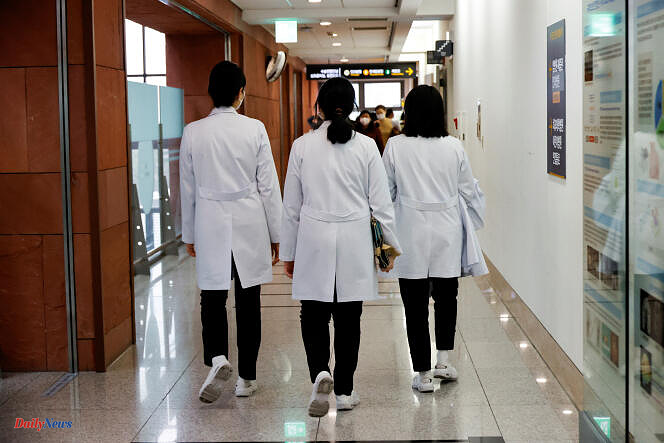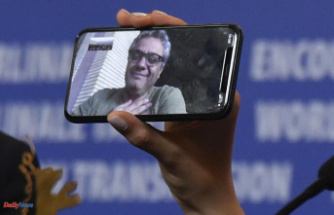The South Korean government announced on Monday March 11 that it had launched the procedure to suspend the licenses of nearly 5,000 young doctors who stopped work to protest against a reform of medical studies. The government “sends administrative notifications to trainee doctors who have defied orders to return to work, and as of March 8, these have been sent to more than 4,900” of them, a Ministry of Health official told journalists. health, Chun Byung-wang.
These formal notices are the first step before a three-month administrative suspension. A sanction which, according to the government, will also delay by at least one year the possibility for these interns to obtain their qualification as specialist doctors. Mr. Chun promised that interns who return to work immediately will not be punished.
Thousands of interns have stopped work and resigned since February 20 to protest a government plan to increase the number of admissions to medical schools by 65% starting next year. As of Monday, around 12,000 interns, or 93% of the total, were still absent from their posts, according to the latest official figures.
Hospitals disrupted
Under South Korean law, doctors, considered essential workers, cannot strike. The government gave protesters until February 29 to return to work and ordered a police investigation into the mobilization. This widespread work stoppage disrupted the operation of hospitals, forcing them to cancel crucial treatments and surgical operations.
The South Korean government considers it essential to increase the number of doctors to cope with the aging population. The striking doctors argue that the reform will harm the quality of care. But supporters of the project say doctors are most concerned that the reforms could affect their income and social status.
According to a recent Korean Gallup poll, more than 75 percent of respondents favor reform.












